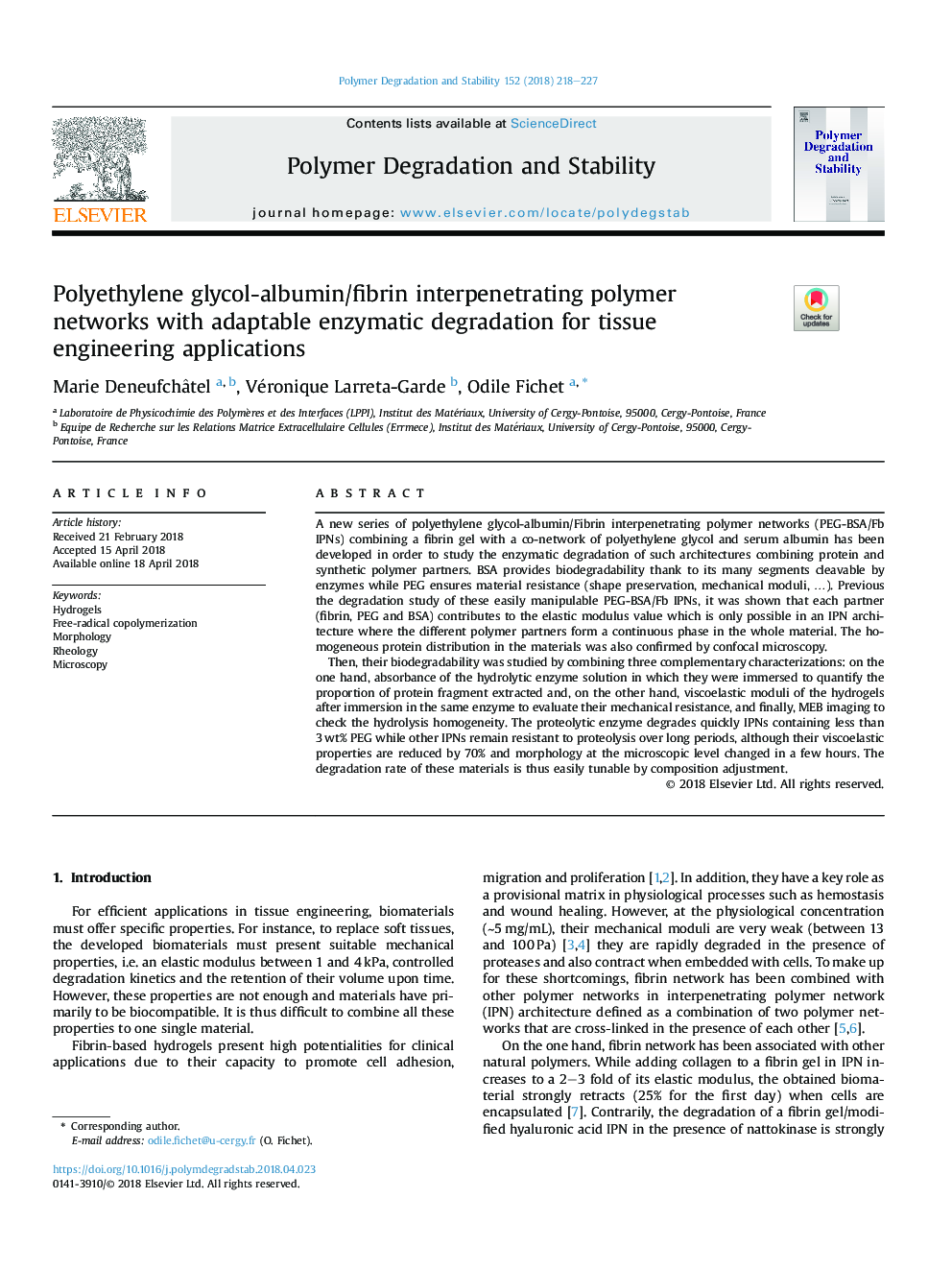| Article ID | Journal | Published Year | Pages | File Type |
|---|---|---|---|---|
| 7824043 | Polymer Degradation and Stability | 2018 | 10 Pages |
Abstract
Then, their biodegradability was studied by combining three complementary characterizations: on the one hand, absorbance of the hydrolytic enzyme solution in which they were immersed to quantify the proportion of protein fragment extracted and, on the other hand, viscoelastic moduli of the hydrogels after immersion in the same enzyme to evaluate their mechanical resistance, and finally, MEB imaging to check the hydrolysis homogeneity. The proteolytic enzyme degrades quickly IPNs containing less than 3â¯wt% PEG while other IPNs remain resistant to proteolysis over long periods, although their viscoelastic properties are reduced by 70% and morphology at the microscopic level changed in a few hours. The degradation rate of these materials is thus easily tunable by composition adjustment.
Related Topics
Physical Sciences and Engineering
Chemistry
Organic Chemistry
Authors
Marie Deneufchâtel, Véronique Larreta-Garde, Odile Fichet,
